Intel Xeon E5-2600 & R2000GZ Sandy Bridge-EP Server Review
CrystalDiskMark
CrystalDiskMark is a small benchmark utility for drives and enables rapid measurement of sequential and random read/write speeds. Note that CDM only supports Native Command Queuing (NCQ) with a queue depth of 32 (as noted) for the last listed benchmark score. This can skew some results in favor of controllers that also do not support NCQ.
Intel Grizzly Pass Server Configured in RAID 5 with Write Back
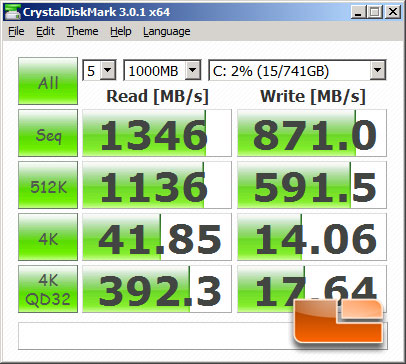
Intel Grizzly Pass Server Configured in RAID 5 with Write Through
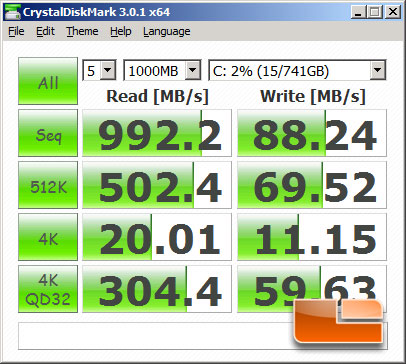
Benchmark Results: We configured the RAID 5 array with two different modes for this test. The first mode that we ran was with Write Back enabled. Write back takes advantage of the LSI onboard memory to store the data being written as it writes to the RAID Array, this gives a boost to the performance since we are writing to the LSI controller and not directly to the Intel 710 series SSD’s themselves. The sequential reads with write back hit an impressive 1346 MB/s and the Sequential Writes hit 871MB/s! The 4K read was 41.85MB/s while the 4K write was only 14.06MB/s (more on this result shortly). Setting the Intel 710 series SSD RAID array to write through mode or results dropped a rather significant amount. The Sequential read dropped from 1346MB/s previously to 992.2MB/s and the sequential write dropped from 871.0MB/s to 88.24MB/s. The 4K read which was 41.85MB/s fell to 20.01MB/s and the 4K write fell to 11.15MB/s. Small block writes in a RAID 5 array suffer greatly as you can see, this is due to the nature of RAID 5 and each small write ending up being two disk reads and two disk writes (4 I/O’s). While typically this hit is helped via the controller’s cache however in the write-back test we were sending more data than the cache could contain at once.
SQLIO
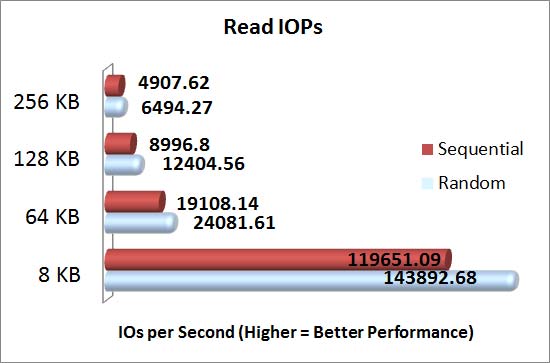
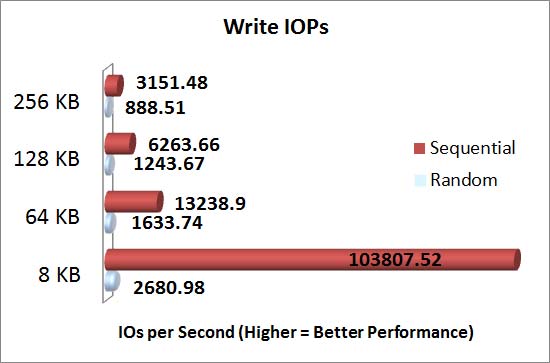
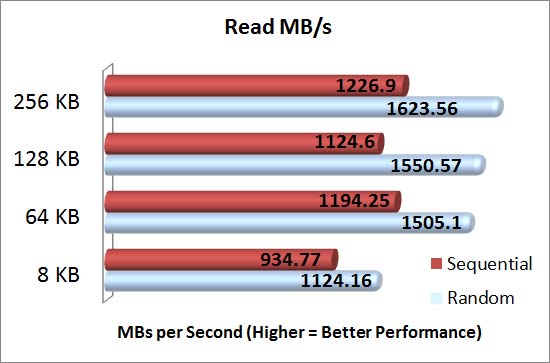
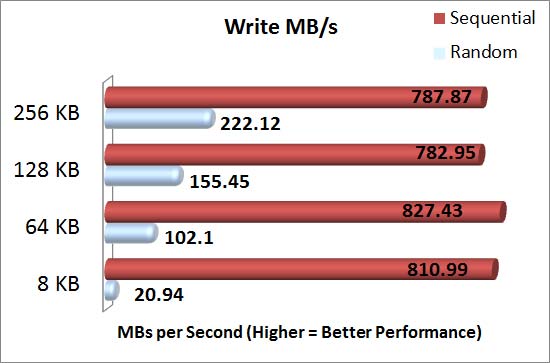
Benchmark Results: The SQLIO tests were done with the array in Write Back mode. Again, Write back takes advantage of the LSI onboard memory to store the data being written as it writes to the RAID Array, this gives a boost to the performance since we are writing to the LSI controller and not the Intel 710 series SSD’s directly. This test shows the relationship between I/O operations and MB/s rather clearly. As expected, sequential read speeds on the array were very good ranging from 934.77 MB/s to 1226.9 MB/s however the random reads ranged from a very impressive 1124.16 MB/s to an astonishing 1623.56 MB/s. RAID-5 really shines in random read performance and increases greatly the more drives that are added to the array.

Comments are closed.